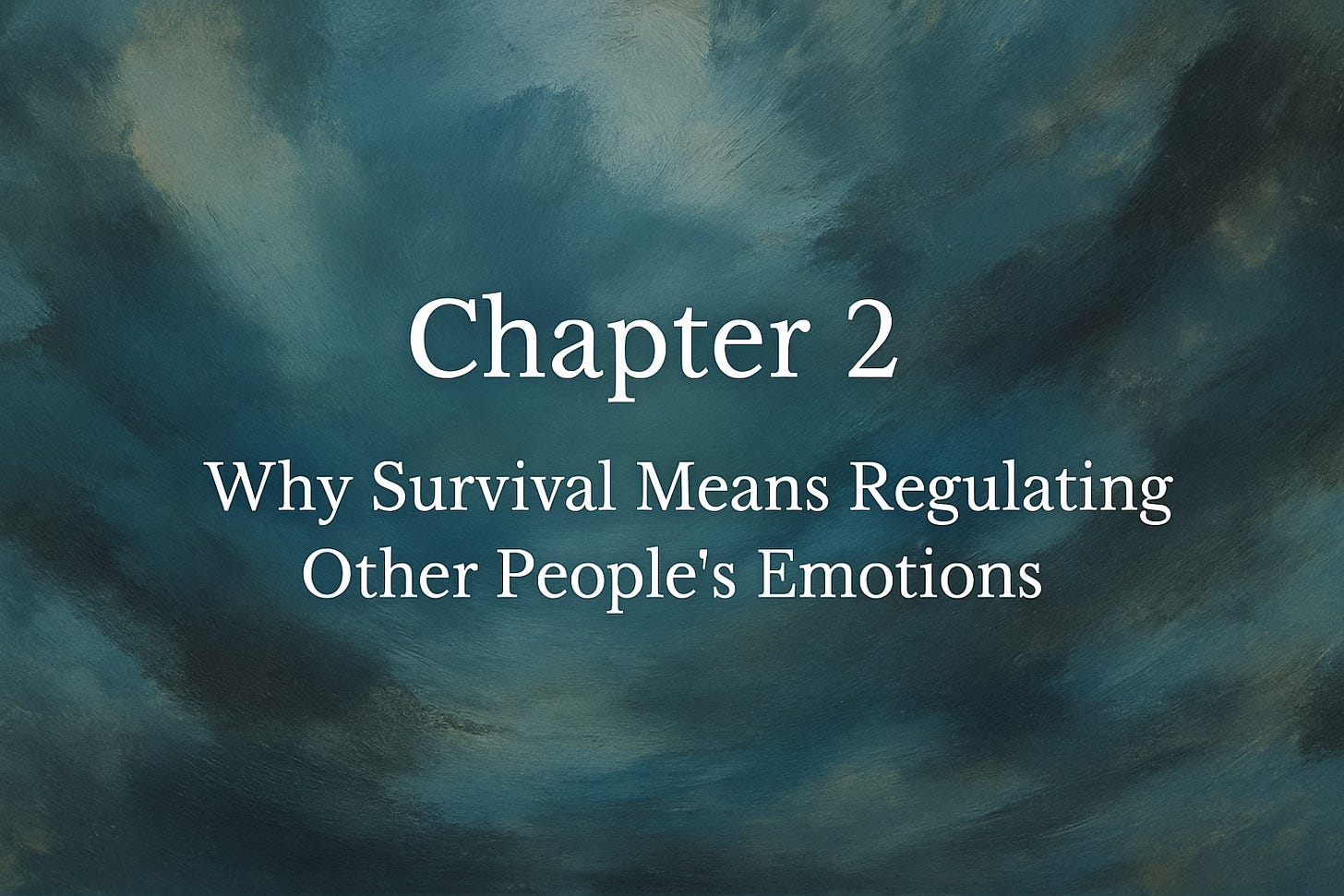Chapter 2: Why Survival Means Regulating Other People’s Emotions
From the THX Series Hub - Behind the Mask: The Invisible Labor of Neurodivergent Survival
When I say masking is about survival, I don’t just mean hiding.
I mean active, exhausting emotional regulation—on behalf of everyone else in the room.
For many neurodivergent people, survival isn't just about managing their own sensory overwhelm, energy drain, or anxiety. It's about monitoring the emotional landscape of others to predict discomfort before it escalates—and then managing, absorbing, or neutralizing it before it becomes a threat.
Because when others feel uncomfortable, confused, or embarrassed, it isn’t just their emotional state at risk.
It’s ours.
Their discomfort can lead to exclusion. Retaliation. Misunderstanding. Denied promotions. Lost opportunities. Reputational harm. Physical danger.
So we learn to regulate them—before they even realize they’re dysregulated.
Examples of Emotional Regulation in Real Life
Corporate Meetings — Waiting until the final moments to present conclusions so no one feels outpaced, outsmarted, or defensive.
Team Dynamics — Asking gentle, seemingly "off-topic" questions to guide others toward a realization they need to discover themselves.
Client Interactions — Modulating tone, pace, and certainty to create emotional safety for the client—not just intellectual trust.
Family Relationships — Softening truths, masking overwhelm, reading micro-expressions to avoid triggering guilt, fear, or anger.
Friendships — Pretending not to notice slights, misunderstandings, or social confusion to preserve fragile bonds.
Each interaction becomes a calculation:
How much of myself must I suppress to keep this environment stable enough to survive?
THX Frameworks Behind the Mask
(For more on the THX Frameworks)
12 Utilities — Systems fail to provide Clarity, Security, or Availability, so we build emotional scaffolding ourselves.
Prospect Theory — Fear of loss (of safety, resources, belonging) weighs heavier than potential gains.
PERMAH — Masking fractures emotional wellbeing and blocks authentic flourishing.
Micro-Moments — Every act of emotional regulation is a micro-moment of labor invisible to others but cumulative to us.
Admiration Equation — True admiration requires multiple, multi-sensory positive micro-moments (12 Utilities) with no emotional betrayal—something masked neurodivergent individuals often deliver without recognition.
The Emotional Cost
We aren’t just navigating our own energy. We’re shouldering the emotional regulation others should be doing for themselves.
The cost is:
Cognitive fatigue
Emotional burnout
Physical exhaustion
Relational isolation
Loss of authenticity
Over time, survival feels less like living—and more like performance art.
Final Thought
Survival means regulating the emotional ecosystem, not just our own bodies.
It’s a skill.
It’s a burden.
It’s a brilliance that deserves recognition—and a cost that demands repair.
And for many of us, it's why solitude feels like the only place where real safety lives.




